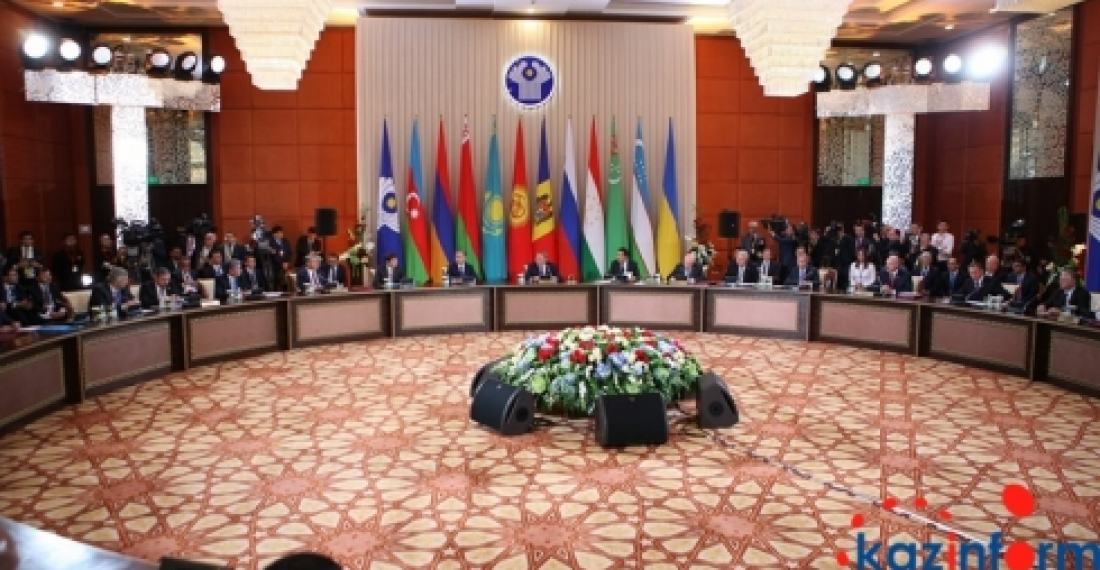A summit of the Commonwealth of Independent States (CIS), was held in Kazakhstan on Friday, 16 October, with the participation of Russian president Vladimir Putin and other Heads of State and Government from the member states. Economic issues dominated the agenda.
Outgoing Chairman of the CIS, Kazakh President Nursultan Nazarbyev told the session of the CIS Heads of State Council that "frankly speaking, we had a difficult time of presidency in terms of the economic situation, but we tried to fulfill our mission. All the events planned within the CIS framework have been held."
The Kazakh President also informed that the 10th CIS Forum of Creative and Academic Intellectuals would be held in Astana this month and the CIS Heads of Government Council was scheduled to be held in Dushanbe soon.
"These events round up our presidency. Using this opportunity I would like to thank all our CIS partners for understanding and support of our presidency," the President concluded.
The presidency in the CIS in 2016 goes to Kyrgyzstan and the next sitting of the CIS Heads of State Council would be held in Kyrgyzstan on September 16, 2016.
In his speech, Russian President Vladimir Putin also focused on economic issues. Putin proposed to the leaders to "switch more actively to sub-national currencies in mutual settlements".
The Russian president reminded about the agreement on free-trade zone in CIS signed in 2011. "We should use its potential to the fullest and maximally simplify conditions for movement of goods and investment flows," Putin said. He noted that aggregate GDP of CIS countries decreased in the first quarter of 2015 as well as investment in capital stock. "Trade turnover between our countries has also decreased. In this situation, it is important to think about the package of measures on lowering dependence of national economics from foreign markets and think about reviving business ties inside the Commonwealth," he added.
Putin noted that Russia is finishing the ratification of the Agreement on CIS integrated currency market. The document was signed in Ashgabat in December 2012 by Armenia, Belarus, Kazakhstan, Kyrgyzstan, Russia and Tajikistan. "The enforcement of the document will allow us to conduct coordinated currency policy, and in the future maybe even form CIS common financial market," the Russian president said.
source: commonspace.eu with Kazinform News Agency (Kazakhstan) and Itar-Tass news Agency (Russia).
photo: The opening session of the CIS Heads of Government Council held in Burabai, Kazakhstan on Friday, 16 October 2015. (picture courtesy of Kazinform news Agency).






